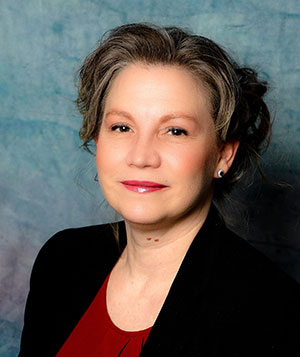UW Nursing Faculty ‘Cancer Ghosting’ Research Featured in Oncology Newsletter
Published August 19, 2025

Jennifer Stephens
A faculty member with the University of Wyoming’s Fay W. Whitney School of Nursing has been featured in the summer 2025 edition of the Oncology Nursing Society (ONS) online newsletter along with her and her team’s research.
Jennifer Stephens -- an assistant professor whose research background includes the study of many types of cancers, along with their diagnosis and treatment -- was featured in the ONS newsletter dealing with a relatively new phenomenon known as “cancer ghosting.”
Ghosting, commonly defined as “the act or practice of abruptly cutting off all contact with someone,” is often associated with online dating. However, the article points out it can occur in any aspect of life, including during a cancer diagnosis.
Stephens became interested in learning more about cancer ghosting while conducting interviews for a study on ocular melanoma in 2023. This type of ghosting has become increasingly prevalent on social media.
“Working in oncology nursing for over 25 years, I have witnessed the rise of a concerning behavior in which someone is abandoned or isolated socially after a cancer diagnosis,” Stephens says. “After completing a study on ocular melanoma in 2023 and hearing so many of these stories of being dropped by a mother, father, brother, sister, best friend or spouse, I became passionate about generating a better understanding of this devastating phenomenon.”
A diagnosis of cancer is, in itself, a very challenging event in a person’s life. However, for the patient to then experience social abandonment -- due to a friend or family member being uncomfortable or afraid of how to respond -- only adds to the emotional toll for the patient.
To assist in her research on this topic, Stephens reached out to Carlos Garcia, a research assistant with the Meredith and Jeannie Ray Cancer Center at Ivinson Memorial Hospital in Laramie, and Jenifer Thomas, an associate professor and psychologist with the UW nursing school.
Stephens’ team then sought to use a research method known as netnography -- collecting data to better understand online cultures and communities including social media -- with a focus on cancer patients.
Their findings showed a broad spectrum of cancer patients experiencing ghosting, both online and in person, including reports of isolation, loneliness and mental health decline, often related to misunderstandings of what cancer is and how it can affect a person.
To assist nurses and other health professionals when caring for cancer patients, Stephens and her team are developing a tool to determine social media use as well as the occurrence of cancer ghosting in patients.
“The tool that my team and I developed is a short-question survey that can be quickly added into a health assessment,” Stephens says. “It reminds the practitioner to ask about social media use, but also about the psychosocial health of the patient in a way that reminds us that cancer carries social stigmas that can result in painful isolation and abandonment.”
The netnographic phase of this research is under revision for publication, and this work was presented in a podium lecture at the Oncology Nursing Society Congress in Denver, Colo., earlier this year.
Phase 2 of the study is underway and involves short, digitally recorded interviews with cancer patients about their specific ghosting incidents. Applying critical incident theory, this more in-depth qualitative investigation seeks to more deeply explore the phenomenon of cancer ghosting by providing clinical recommendations for assessments and potential referrals and treatments.
“Dr. Stephens’ work is so important for our oncology patients and families, especially in rural areas like Wyoming where the opportunities for social interaction are already limited,” says Sherrill Smith, dean of the UW nursing school.
“I am proud to recognize Dr. Jennifer Stephens from the Fay W. Whitney School of Nursing for her groundbreaking research on cancer ghosting, recently featured in the Oncology Nursing Society’s national newsletter,” says Patrick Hardigan, dean of the College of Health Sciences. “Her work brings critical attention to the social and emotional challenges faced by cancer patients, and it exemplifies the innovation and impact of faculty across the College of Health Sciences in advancing care, research and community health in Wyoming and beyond.”

